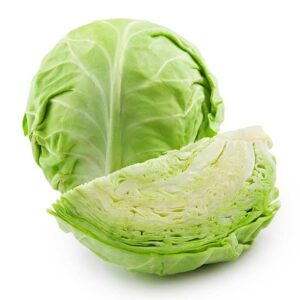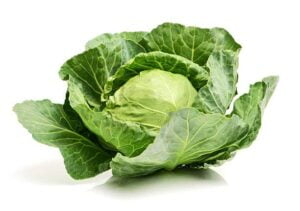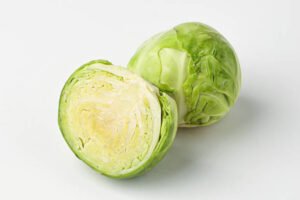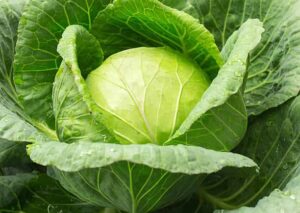Cabbage, a cruciferous vegetable, has long been recognized for its nutritional value and health benefits. From its crunchy texture to its versatility in various cuisines, cabbage offers a plethora of advantages for human health. This article delves into the scientific evidence supporting the consumption of cabbage and its positive impacts on overall well-being.
 Cancer Prevention
Cancer Prevention
Cabbage stands out among cruciferous vegetables for its exceptional cancer-fighting properties. Its unique combination of phytochemicals and antioxidants makes it a potent ally in the battle against cancer. Studies have shown that cabbage contains high levels of sulforaphane, a powerful compound with anti-cancer effects. Sulforaphane works by activating enzymes that detoxify carcinogens and inhibit their ability to damage DNA, thus reducing the risk of cancer initiation and progression.
Moreover, cabbage is rich in indole-3-carbinol (I3C), another bioactive compound that exhibits strong anti-cancer activity. I3C has been shown to modulate hormone metabolism, particularly estrogen, which plays a crucial role in the development of hormone-related cancers such as breast and prostate cancer. By promoting the metabolism of estrogen into less harmful forms, cabbage helps reduce the risk of hormone-dependent cancers and may even inhibit the growth of existing tumors.
In addition to its direct anti-cancer effects, cabbage also supports immune function, which plays a vital role in cancer prevention and surveillance. The high vitamin C content in cabbage boosts immune function by enhancing the production and activity of immune cells, such as T cells and natural killer cells, which target and destroy cancer cells. Furthermore, cabbage’s anti-inflammatory properties help create an environment in the body that is less conducive to cancer growth and metastasis.
 Heart Health
Heart Health
Incorporating cabbage into your diet may also support heart health. The high fiber content in cabbage can help lower cholesterol levels, reducing the risk of heart disease and stroke. Additionally, cabbage contains potassium, a mineral that helps regulate blood pressure by counteracting the effects of sodium and relaxing blood vessel walls. Studies have shown that diets rich in potassium from fruits and vegetables like cabbage are associated with a lower incidence of hypertension and cardiovascular events.
Cabbage possesses unique properties that make it especially beneficial for heart health. One such property is its abundance of phytonutrients, including sulforaphane and anthocyanins, which have been shown to have cardioprotective effects. These compounds help reduce inflammation and oxidative stress in the cardiovascular system, which are key factors in the development of heart disease.
Moreover, cabbage contains glucosinolates, sulfur-containing compounds that have been linked to improved heart health. Glucosinolates have been shown to help regulate lipid metabolism and reduce the formation of plaque in the arteries, thus lowering the risk of atherosclerosis and coronary artery disease.
Furthermore, cabbage is an excellent source of vitamin C, an antioxidant that plays a crucial role in maintaining the health of blood vessels and reducing the risk of endothelial dysfunction. By promoting the production of collagen and supporting the repair of damaged blood vessel walls, vitamin C contributes to overall cardiovascular health and function.
 Digestive Health
Digestive Health
Cabbage is a rich source of dietary fiber, which plays a crucial role in digestive health. Fiber adds bulk to stool, promoting regular bowel movements and preventing constipation. Moreover, fiber acts as a prebiotic, nourishing beneficial gut bacteria and supporting a healthy gut microbiome. By maintaining gut integrity and promoting microbial diversity, cabbage consumption may help prevent digestive disorders such as inflammatory bowel disease and colorectal cancer.
Unlike some other sources of dietary fiber, cabbage contains specific compounds known as glucosinolates, which have been shown to have anti-inflammatory and anti-cancer effects within the gastrointestinal tract. These compounds, along with cabbage’s high fiber content, contribute to its role in promoting optimal digestive function.
Moreover, cabbage is rich in sulfur-containing compounds, such as sulforaphane and indole-3-carbinol, which have been studied for their potential to support gastrointestinal health. These compounds help regulate the production of digestive enzymes and promote the detoxification of harmful substances in the digestive system, further enhancing cabbage’s digestive benefits.
Additionally, cabbage contains a significant amount of water, which aids in hydration and facilitates the smooth passage of food through the digestive tract. Proper hydration is essential for maintaining healthy digestion and preventing issues such as constipation and bloating.
Furthermore, the fermentation process used to create foods like sauerkraut and kimchi from cabbage enhances its digestive benefits even further. Fermented cabbage products are rich in probiotics, which are beneficial bacteria that help maintain a healthy balance of microorganisms in the gut. These probiotics support digestion, strengthen the intestinal barrier, and may help alleviate symptoms of digestive disorders such as irritable bowel syndrome (IBS) and inflammatory bowel disease (IBD).
 Anti-inflammatory Properties
Anti-inflammatory Properties
Chronic inflammation is a contributing factor to various diseases, including arthritis, diabetes, and cardiovascular disease. Cabbage contains anti-inflammatory compounds, such as anthocyanins and vitamin C, which help reduce inflammation in the body. These compounds inhibit the production of pro-inflammatory cytokines and enzymes, thereby alleviating inflammation and its associated symptoms.
In addition to its rich content of anthocyanins and vitamin C, cabbage possesses several unique qualities that contribute to its potent anti-inflammatory effects. One such attribute is its high concentration of glucosinolates, sulfur-containing compounds known for their anti-inflammatory and detoxifying properties. Glucosinolates are metabolized into bioactive compounds like isothiocyanates and indole-3-carbinol, which have been shown to modulate inflammatory pathways and suppress the production of inflammatory mediators.
Furthermore, cabbage contains a diverse array of phytonutrients and phytochemicals, each with its own anti-inflammatory potential. For example, kaempferol, a flavonoid present in cabbage, has been found to exert anti-inflammatory effects by inhibiting the activity of inflammatory enzymes and signaling pathways. Likewise, quercetin, another flavonoid abundant in cabbage, exhibits powerful anti-inflammatory properties by scavenging free radicals and reducing oxidative stress.
Moreover, the synergistic interactions between the various bioactive compounds in cabbage enhance its overall anti-inflammatory efficacy. Studies have shown that the combination of different phytochemicals present in cabbage may have a cumulative effect, amplifying its ability to combat inflammation and mitigate its detrimental effects on health.
 Weight Management
Weight Management
Incorporating cabbage into your diet can be beneficial for weight management and maintaining a healthy body weight. Cabbage is low in calories and high in fiber, promoting satiety and reducing overall calorie intake. Furthermore, the high water content in cabbage helps keep you hydrated and feeling full, making it an excellent choice for those looking to manage their weight effectively.
Moreover, cabbage possesses certain properties that make it particularly effective for weight management. Its high fiber content not only promotes satiety but also aids in digestion, helping to regulate bowel movements and prevent constipation. Unlike some other low-calorie foods, cabbage is incredibly versatile, allowing for a wide range of culinary preparations that can satisfy various tastes and preferences.
Furthermore, cabbage is rich in nutrients such as vitamins C and K, as well as antioxidants, which are essential for overall health and well-being. When combined with its low calorie and high fiber profile, cabbage becomes an excellent choice for promoting weight loss without sacrificing nutritional quality. Additionally, cabbage is budget-friendly and widely available, making it accessible to individuals from all walks of life who are striving to achieve their weight management goals.
 Bone Health
Bone Health
Cabbage contains significant amounts of vitamin K, which plays a crucial role in bone metabolism and calcium absorption. Adequate vitamin K intake is associated with improved bone mineral density and a reduced risk of osteoporosis and fractures. By including cabbage in your diet, you can support bone health and contribute to the prevention of age-related bone disorders.
In addition to its rich vitamin K content, cabbage offers unique properties that make it particularly beneficial for bone health. Unlike some other leafy greens, cabbage is also a good source of minerals such as calcium and magnesium, which are essential for maintaining strong and healthy bones. Calcium, in particular, is a key component of bone tissue, providing structural support and strength.
Furthermore, cabbage contains phytonutrients and antioxidants that work synergistically with vitamin K to promote bone health. Sulforaphane, for example, a compound found in cruciferous vegetables like cabbage, has been shown to stimulate bone formation and inhibit bone resorption, the process by which old bone tissue is broken down. These combined factors contribute to cabbage’s unique ability to support bone density and reduce the risk of fractures.
Immune Support
The immune-boosting properties of cabbage are attributed to its high vitamin C content. Vitamin C is essential for the proper functioning of the immune system, as it enhances the production of white blood cells and antibodies that help fight off infections and illnesses. Regular consumption of cabbage can strengthen your immune defenses and reduce the risk of common infections such as colds and flu.
In addition to its high vitamin C content, cabbage possesses unique phytonutrients and antioxidants that contribute to its immune-boosting capabilities. Sulforaphane, a sulfur-containing compound found in cabbage, has been shown to have potent anti-inflammatory and antimicrobial properties. It helps modulate the immune response by regulating the production of cytokines, which are signaling molecules involved in the body’s immune defense mechanisms. By promoting a balanced immune response, sulforaphane in cabbage can help protect against infections while mitigating the risk of excessive inflammation.
Furthermore, cabbage is rich in glutamine, an amino acid that plays a crucial role in supporting the integrity of the intestinal lining. A healthy gut lining is essential for optimal immune function, as it serves as a barrier against harmful pathogens and toxins. Glutamine helps nourish the cells lining the gut and supports the growth of beneficial gut bacteria, thereby enhancing the gut-immune axis and promoting overall immune resilience.
Moreover, cabbage contains a diverse array of polyphenols, including flavonoids and phenolic compounds, which possess potent antioxidant and anti-inflammatory properties. These bioactive compounds help scavenge free radicals, reduce oxidative stress, and modulate immune cell activity. By neutralizing harmful molecules and regulating immune function, polyphenols in cabbage contribute to the maintenance of a robust and responsive immune system.
Skin Health
Cabbage contains antioxidants and phytonutrients that promote skin health and combat the signs of aging. The vitamin C in cabbage plays a crucial role in collagen synthesis, which helps maintain skin elasticity and firmness. Additionally, the sulfur compounds in cabbage contribute to detoxification processes in the body, which may help reduce the occurrence of skin problems such as acne and blemishes.
In addition to its rich antioxidant content, cabbage possesses unique qualities that make it especially beneficial for skin health. One such characteristic is its high water content, which helps keep the skin hydrated and supple. Proper hydration is essential for maintaining skin health and preventing dryness, irritation, and premature aging. Cabbage’s hydrating properties make it an excellent addition to skincare routines, whether consumed internally or applied topically in the form of masks or toners.
Moreover, cabbage contains a variety of vitamins and minerals that support overall skin vitality. In addition to vitamin C, cabbage is a good source of vitamin A, which promotes skin cell turnover and regeneration. Vitamin A also helps regulate sebum production, preventing clogged pores and reducing the risk of acne breakouts. Furthermore, the presence of minerals such as potassium and magnesium helps maintain the skin’s pH balance and supports optimal functioning of skin cells.
Brain Function
The nutrients found in cabbage, including vitamin K and anthocyanins, have been shown to support cognitive function and brain health. Vitamin K is involved in the synthesis of sphingolipids, a type of fat essential for brain cell membranes, while anthocyanins have been linked to improved memory and cognitive performance. Including cabbage in your diet may help protect against age-related cognitive decline and neurodegenerative diseases such as Alzheimer’s.
The remarkable benefits of cabbage extend beyond mere nutrition, as this unassuming vegetable harbors unique compounds that support optimal brain function. One of cabbage’s standout features is its rich content of glucosinolates, sulfur-containing compounds that have been shown to exert neuroprotective effects. These compounds help combat oxidative stress and inflammation in the brain, safeguarding against age-related cognitive decline and neurodegenerative disorders.
Moreover, cabbage contains a wealth of phytonutrients, such as sulforaphane and kaempferol, which possess potent antioxidant and anti-inflammatory properties. These bioactive compounds penetrate the blood-brain barrier, where they exert their protective effects on brain cells and neural pathways. By reducing oxidative damage and inflammation, cabbage helps preserve cognitive function and promote neural plasticity, the brain’s ability to adapt and form new connections.
Furthermore, cabbage stands out as a rich source of choline, an essential nutrient that plays a vital role in brain health. Choline is a precursor to acetylcholine, a neurotransmitter involved in memory, learning, and muscle control. Adequate choline intake has been linked to improved cognitive function and reduced risk of cognitive decline. Incorporating cabbage into your diet provides a natural and delicious way to boost choline levels and support optimal brain function throughout life.
Detoxification
Cabbage contains sulfur-containing compounds, such as glucosinolates, which support the body’s natural detoxification processes. These compounds aid in the elimination of harmful toxins and heavy metals from the body, thereby reducing the burden on the liver and promoting overall detoxification. Regular consumption of cabbage can help support the body’s detoxification pathways and enhance overall health and vitality.
What sets cabbage apart in the realm of detoxification is its unique combination of nutrients and phytochemicals. Notably, cabbage contains a high concentration of vitamin C, an antioxidant that plays a crucial role in neutralizing free radicals and supporting liver function. Additionally, cabbage is rich in indole-3-carbinol, a compound known for its ability to enhance the liver’s detoxification enzymes, facilitating the breakdown and elimination of toxins from the body.
Moreover, cabbage is a rich source of glutathione, a potent antioxidant and detoxifier produced by the liver. Glutathione plays a central role in the body’s detoxification processes by binding to toxins and facilitating their excretion through bile and urine. Cabbage’s abundance of sulfur compounds further enhances glutathione production, ensuring efficient detoxification and protection against oxidative stress.
Furthermore, cabbage contains dietary fiber, which acts as a natural binder, helping to escort toxins and waste products out of the body through the digestive tract. The fiber content in cabbage also promotes regular bowel movements, preventing the reabsorption of toxins in the colon and supporting optimal detoxification.
Eye Health
The presence of carotenoids, including lutein and zeaxanthin, in cabbage contributes to its benefits for eye health. These compounds are known to protect the eyes from age-related macular degeneration and cataracts by filtering out harmful ultraviolet rays and reducing oxidative stress in the retina. By including cabbage in your diet, you can support long-term eye health and preserve visual acuity as you age.
Cabbage stands out among other vegetables for its unique combination of nutrients that contribute to eye health. Apart from carotenoids, cabbage is also rich in vitamin A, an essential nutrient for maintaining healthy vision. Vitamin A plays a crucial role in the production of rhodopsin, a pigment found in the retina that aids in low-light and color vision. By providing a significant portion of the recommended daily intake of vitamin A, cabbage helps ensure optimal functioning of the eyes, particularly in low-light conditions.
Moreover, cabbage contains sulfur-containing compounds, such as sulforaphane and glucosinolates, which possess potent antioxidant and anti-inflammatory properties. These compounds have been shown to protect retinal cells from damage caused by oxidative stress and inflammation, thereby reducing the risk of age-related vision disorders. Additionally, cabbage’s high water content helps maintain hydration levels in the eyes, promoting tear production and preventing dryness, a common issue associated with prolonged screen time and environmental factors.
Antimicrobial Properties
Cabbage exhibits antimicrobial properties that help protect against various bacterial and fungal infections. Compounds found in cabbage, such as sulforaphane and indole-3-carbinol, have been shown to inhibit the growth of pathogenic microorganisms and promote a healthy balance of beneficial bacteria in the gut. Incorporating cabbage into your diet may help strengthen your body’s natural defenses against infectious diseases and promote gut health.
Unlike synthetic antimicrobial agents, which may lead to antibiotic resistance over time, the antimicrobial compounds found in cabbage work synergistically with the body’s natural defense mechanisms, minimizing the risk of resistance development. This natural approach not only targets harmful pathogens but also supports the proliferation of beneficial bacteria, fostering a balanced and resilient gut microbiome.
Furthermore, the bioavailability of cabbage’s antimicrobial compounds is enhanced by its preparation and consumption methods. Whether consumed raw, cooked, or fermented, cabbage retains its antimicrobial properties, allowing for diverse culinary applications while maximizing its health benefits. Fermented cabbage products such as sauerkraut and kimchi undergo a fermentation process that not only enhances their flavor but also increases the concentration of bioactive compounds, resulting in potent antimicrobial effects.
Moreover, cabbage’s antimicrobial properties extend beyond internal health to encompass external applications as well. Extracts derived from cabbage have been utilized in natural skincare products for their ability to inhibit the growth of acne-causing bacteria and promote skin health. This dual action underscores cabbage’s versatility as a holistic remedy for both internal and external microbial challenges, offering a comprehensive approach to wellness and vitality.
The nutritional value per 100 grams of cabbage
- Calories: Approximately 25 kcal
- Protein: About 1.3 grams
- Fat: Less than 0.2 grams
- Carbohydrates: Around 5.8 grams
- Dietary Fiber: Roughly 2.5 grams
- Sugars: Approximately 3.2 grams
- Vitamins:
- Vitamin A: About 98 IU
- Vitamin C: Around 36.6 milligrams
- Vitamin K: Roughly 76 micrograms
- Vitamin B6: Approximately 0.1 milligrams
- Folate: About 43 micrograms
- Minerals:
- Calcium: Roughly 40 milligrams
- Iron: Around 0.5 milligrams
- Magnesium: Approximately 12 milligrams
- Phosphorus: Roughly 26 milligrams
- Potassium: About 170 milligrams
- Sodium: Around 18 milligrams
- Zinc: Approximately 0.3 milligrams
- Other Nutrients:
- Water: Roughly 92 grams
- Ash: About 0.6 grams
These values are approximate and can vary slightly based on factors such as variety, freshness, and cooking methods. However, they provide a general overview of the nutritional composition of cabbage per 100 grams.
Conclusion
The scientific evidence overwhelmingly supports the inclusion of cabbage in a healthy diet for its numerous health benefits. Whether consumed raw, cooked, or fermented, cabbage offers a wealth of nutrients and bioactive compounds that promote overall well-being. From cancer prevention to heart health and digestive support, the diverse array of beneficial properties found in cabbage underscores its importance as a dietary staple. Incorporating this humble yet potent vegetable into your meals can be a simple and effective way to enhance your health and vitality.
 Looking for a simple yet flavorful way to enjoy cabbage? Look no further than this delightful recipe for Steamed Cabbage with Sunflower Seed Dressing. Jamie Oliver has created a dish that beautifully showcases the natural sweetness and crisp texture of cabbage while adding a burst of flavor with a zesty sunflower seed dressing. This dish is not only delicious but also packed with nutrients, making it a perfect addition to any meal. Whether you’re a cabbage enthusiast or looking to explore new vegetable recipes, this dish is sure to impress with its simplicity and taste. Let’s dive into the recipe and elevate your cabbage game to new heights!
Looking for a simple yet flavorful way to enjoy cabbage? Look no further than this delightful recipe for Steamed Cabbage with Sunflower Seed Dressing. Jamie Oliver has created a dish that beautifully showcases the natural sweetness and crisp texture of cabbage while adding a burst of flavor with a zesty sunflower seed dressing. This dish is not only delicious but also packed with nutrients, making it a perfect addition to any meal. Whether you’re a cabbage enthusiast or looking to explore new vegetable recipes, this dish is sure to impress with its simplicity and taste. Let’s dive into the recipe and elevate your cabbage game to new heights!
Contraindications to consuming cabbage
Digestive Issues: Cabbage contains fiber and certain sugars that may cause gas, bloating, or gastrointestinal discomfort in some individuals, particularly those with sensitive digestive systems or irritable bowel syndrome (IBS).
Thyroid Disorders: Cabbage is considered a goitrogenic food, meaning it contains compounds that may interfere with thyroid function by inhibiting the uptake of iodine. Individuals with thyroid disorders, especially hypothyroidism, should consume cabbage in moderation and ensure adequate iodine intake.
Blood Clotting Disorders: Vitamin K, abundant in cabbage, plays a crucial role in blood clotting. Individuals taking blood-thinning medications (anticoagulants) such as warfarin should be cautious with cabbage consumption to avoid fluctuations in their INR (International Normalized Ratio) levels.
Allergies: While rare, some individuals may experience allergic reactions to cabbage, particularly those with existing sensitivities to other cruciferous vegetables such as broccoli or Brussels sprouts. Symptoms may include itching, swelling, hives, or respiratory problems.
Kidney Stones: Cabbage is moderately high in oxalates, compounds that can contribute to the formation of kidney stones in susceptible individuals. Those with a history of calcium oxalate kidney stones should consume cabbage in moderation and ensure adequate hydration to help prevent stone formation.
Medication Interactions: Cabbage contains compounds that may interact with certain medications. Individuals taking medications for thyroid disorders, diabetes, or blood clotting should consult their healthcare provider before significantly altering their cabbage intake.
It’s essential to note that while cabbage offers numerous health benefits, individuals with specific health conditions or dietary concerns should always consult with a healthcare professional before making significant changes to their diet.
Fascinating Facts About Cabbage
- Cabbage Patch Dolls Inspiration:
Believe it or not, the iconic Cabbage Patch Dolls, popular toys in the 1980s, were inspired by…cabbages! Xavier Roberts, the creator of these beloved dolls, reportedly got the idea from the unique appearance of the folded fabric used to make their bodies, which reminded him of cabbage leaves.
- Cabbage as a Hangover Cure:
In some cultures, cabbage has been hailed as a remedy for the morning-after effects of excessive alcohol consumption. Whether eaten raw, cooked, or in fermented form, cabbage is believed to help alleviate hangover symptoms and restore balance to the body.
- Cabbage as a Natural Dye:
Cabbage isn’t just for eating—it can also be used as a natural dye for fabrics. Boiling cabbage leaves produces a vibrant purple liquid that can be used to dye yarn, fabric, or even Easter eggs. It’s a fun and eco-friendly way to add a pop of color to your DIY projects.
- Cabbage Beauty Treatments:
Cabbage isn’t just nutritious—it can also be beneficial for your skin and hair. Some beauty enthusiasts swear by cabbage-based treatments, such as cabbage leaf facials or cabbage juice hair rinses, claiming they can help improve skin tone, reduce inflammation, and promote healthy hair growth.
- Cabbage Festivals:
Across the globe, communities celebrate cabbage in all its glory with lively festivals and events. From the Cabbage Festival in Whitehall, New York, to the Kimchi Festival in South Korea, these gatherings feature everything from cabbage-themed parades and cooking competitions to giant cabbage displays and tastings.
- Cabbage Fortune Telling:
In certain folk traditions, cabbage has been used for divination and fortune-telling purposes. From predicting the weather to foretelling marriage prospects, cabbage leaves have been employed as a mystical tool for unraveling the mysteries of the future.
- Cabbage as Musical Instrument:
Surprisingly, cabbage can also double as a musical instrument! Invented by Linsey Pollak, an Australian musician and instrument maker, the “cabbage clarinet” is a wind instrument made from a carrot and a cabbage leaf. It produces a unique sound that’s as quirky as it is captivating.
- Cabbage for Pain Relief:
In folk medicine, cabbage leaves have been used for centuries as a natural remedy for pain relief. Applying cooled cabbage leaves to sore joints or muscles is believed to help alleviate discomfort and promote healing, thanks to the anti-inflammatory properties of cabbage.
- Cabbage as a Love Charm:
Last but not least, cabbage has been associated with love and fertility in various cultures. In some traditions, newlyweds are presented with a head of cabbage as a symbol of prosperity and fertility, while in others, single individuals may place cabbage leaves under their pillow to dream of their future spouse.
- Natural Pest Repellent:
Beyond its culinary and nutritional virtues, cabbage possesses natural insect-repelling properties. Certain compounds found in cabbage, such as thiacremonone, act as natural insecticides, deterring pests like caterpillars and aphids. Some gardeners even use cabbage leaves as a natural alternative to chemical insecticides in their gardens.
- Cabbage Soup Diet:
While fad diets come and go, one that has endured is the “Cabbage Soup Diet.” This diet, which gained popularity in the 1980s, involves consuming large quantities of cabbage soup over a period of seven days, purportedly leading to rapid weight loss. While the diet may produce short-term results, its extreme nature and lack of balanced nutrition have been criticized by health experts. (The Cabbage Soup Diet )
- Cabbage Love Potion:
In some folk traditions, cabbage was believed to possess mystical properties associated with love and fertility. It was not uncommon for young women to place cabbage leaves under their pillows or carry them in their pockets in the hopes of attracting a romantic partner or promoting marital bliss. While the efficacy of such practices remains dubious, the symbolism of cabbage as a harbinger of love persists in certain cultural rituals.
- Cabbage as Currency:
During times of scarcity or economic hardship, cabbage has served as a form of currency in some regions. In war-torn countries or periods of hyperinflation, cabbage’s long shelf life and nutritional value made it a valuable commodity for bartering and trade. Its humble yet practical nature earned cabbage a place in the annals of unconventional currency.
- Cabbage Wedding Tradition:
In certain cultures, cabbage has been incorporated into wedding customs and rituals as a symbol of fertility and prosperity. Newlyweds may be presented with gifts of cabbage or served cabbage-based dishes during wedding celebrations to bless the union with abundance and good fortune.
- Cabbage Fortune Telling:
In folklore and superstition, cabbage has been used for divination and fortune-telling purposes. Methods such as peeling cabbage leaves to reveal hidden messages or interpreting the shapes and patterns of cabbage cores were believed to foretell future events or reveal insights into one’s destiny.
- Cabbage Curiosities:
Finally, cabbage continues to surprise and delight with its array of peculiarities and curiosities. From its ability to grow in space—a cabbage plant was successfully grown aboard the International Space Station—to its role in quirky competitions like cabbage bowling, the versatile vegetable never fails to captivate with its unexpected charm and whimsical nature.
To explore more plants, please visit our page about plants
References:
Ambigaipalan, P., de Camargo, A.C., & Shahidi, F. (2016). Phenolic compounds of pome fruits and their functions. Comprehensive Reviews in Food Science and Food Safety, 15(3), 439-454.
Guo, X., Yang, B., Tan, J., Jiang, J., & Li, D. (2020). Associations between cruciferous vegetable intake and selected biomarkers related to cancer risk: a systematic review of observational studies. Nutrients, 12(8), 2399.
Myint, Z.W., & Oo, T.H. (2018). The role of cabbage and its constituents in the treatment and prevention of colorectal cancer. Gut and Liver, 12(6), 627-634.
Slavin, J.L. (2005). Dietary fiber and body weight. Nutrition, 21(3), 411-418.
Wu, Q.J., Yang, Y., Vogtmann, E., Wang, J., Han, L.H., Li, H.L., … & Zhang, W. (2013). Cruciferous vegetables intake and the risk of colorectal cancer: a meta-analysis of observational studies. Annals of Oncology, 24(4), 1079-1087.
Aranow, C. (2011). Vitamin D and the immune system. Journal of Investigative Medicine, 59(6), 881-886.
Kim, O.Y., Kim, W.K., & Chin, Y.W. (2019). Antioxidant activities and protective effects of cabbage (Brassica oleracea var. capitata L.) leaves against hydrogen peroxide-induced oxidative stress in primary human dermal fibroblasts. Molecules, 24(3), 454.
Manach, C., Scalbert, A., Morand, C., Rémésy, C., & Jiménez, L. (2004). Polyphenols: food sources and bioavailability. The American Journal of Clinical Nutrition, 79(5), 727-747.
Mirmiran, P., Bahadoran, Z., & Azizi, F. (2014). Functional foods-based diet as a novel dietary approach for management of type 2 diabetes and its complications: A review. World Journal of Diabetes, 5(3), 267-281.
Veronese, N., Watutantrige-Fernando, S., Luchini, C., Solmi, M., Sartore, G., Sergi, G., … & Stubbs, B. (2019). Effect of magnesium supplementation on glucose metabolism in people with or at risk of diabetes: a systematic review and meta-analysis of double-blind randomized controlled trials. European Journal of Clinical Nutrition, 73(7), 1002-1009.
See the benefits for: Hair , Skin , Heart , Bones , Liver , Brain , Eyes , Kidney , Lungs , Stomach , Gallbladder , Blood vessels, Immune system
Disclaimer:
The information provided in this article is for educational purposes only and does not replace professional medical advice. Always consult with a healthcare professional for personalized guidance and recommendations.

 Cancer Prevention
Cancer Prevention Heart Health
Heart Health Digestive Health
Digestive Health Anti-inflammatory Properties
Anti-inflammatory Properties Weight Management
Weight Management Bone Health
Bone Health